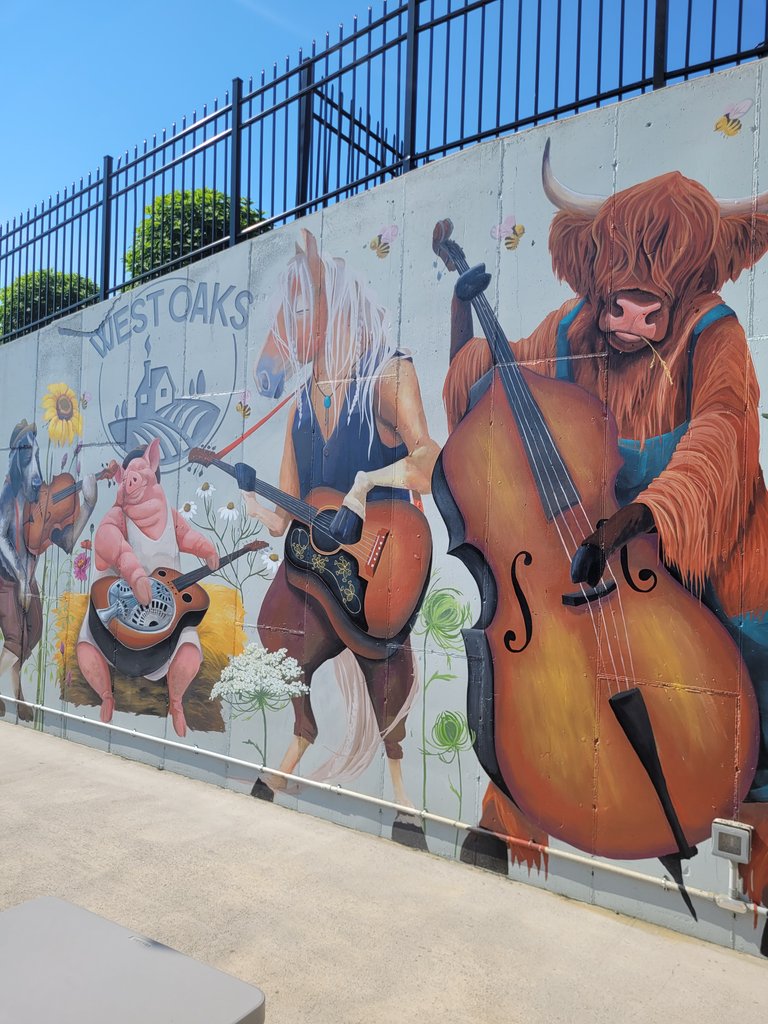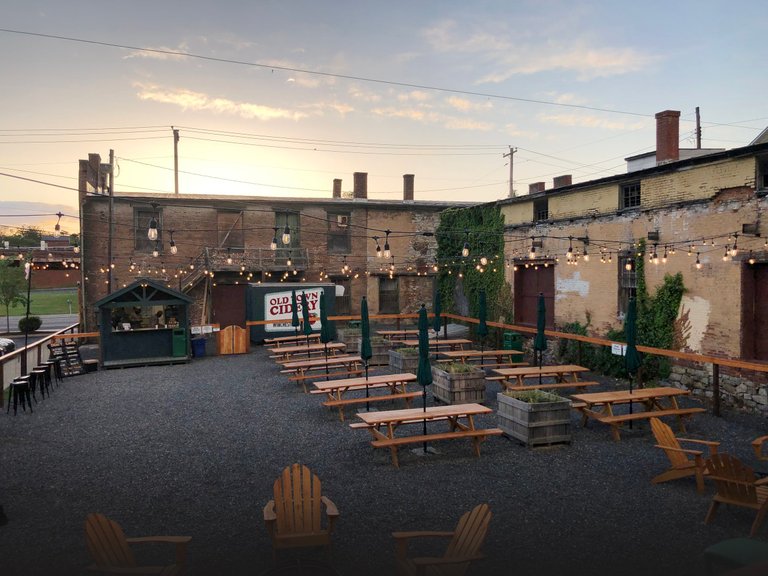I was recently blessed to get the opportunity to go and tour different fruit growing operations in the Appalachian's. The views and the people blew me away.
I am involved in a group called the Young Growers Association. We are located in Pennsylvania. This group put together by our land grant school, Penn State University. This group is helpful in organizing tours and events for young(ish) growers. We are mostly comprised of orchardist that specialize in growing apples but many growers also have diversified into many other things such as peaches, cherries, berries, and grapes among many other things. Many people come from family owned and operated farms with several generations leading to them.
This is very much the case of the first stop on our tour. During this stop we had the pleasure of visiting a farm market and event space in Winchester, VA. This farm is run by the Snapp family which is a 10th generation operation. They have a beautiful market and host bands during the week.

This cool mural is something they just added to their stage area to liven it up. We got some very cool insight in how they took small steps to get to where they are now. They transitioned from a very small roadside shed to a much larger retail space over only about 10 years. Then they moved from that to what they have now in the past 4 years. It was quite interesting to get their insight on how they decide on new ideas and press into new areas.
After that we headed over to Glaize Apples and Old Town Cidery. The Glaize's are also a multi generational family farm. They are coming from a processing fruit background. They run a juice press that they use for their cider. They also are exploring varieties that work for them in their climate that are desired for the cider making process. It was very nice to see them open up and show us the "ugly" and risk that it takes to learn new things. They tried several different varieties that didn't do well at all but they did get to walk away with a handful that did so they know what they will want to plant for production in the future. This production is for their new cidery they opened in Winchester. Here they are still in their "shed" phase as they have a shed and open air space where they serve their cider.

After taking a lunch at the cidery we headed down the road quite a ways to a large fruit growing operation called Turkey Knob Growers. This operation is a family owned grower packer that mainly handles apples and a small number of peaches. Here we talked about the industry at large and how much of what occurs on the West Coast in Washington affects our growing areas in the east when it comes to packers. Our volume in the east is much smaller and we fight many diseases that the Washington state growers don't face due to a dryer climate. Our high humidity and rainfall creates opportunities for many bacterial and fungal issues that are very hard to combat. This is what has created the boom of the farm stand and direct marketer as we have an unique opportunity being so close to the population. We also don't have to spend the money to ship fruit across the continent which makes for a more sustainable system in my humble opinion.
While we were at Turkey Knob we also got to see there packing line that was comprised of sorters and different mechanization. We also discussed the convergence and oppositional values at times of the the food safety regulations and the push for sustainable production. Increased desire for more repetitive cleanings and refreshing of water used in the processing of the fruit creates much waste that is counter to the desires of reducing such waste. It will be interesting to see how regulators and producers find a way to balance the two in the future.
All in all it was very incredible day 1. I find it inspiring to see these growers take on this labor of love. It is always incredible to me to see the drive to grow and try out new avenues. I also appreciate the risks these people take to try to stay afloat in an ever changing world. I see them face very difficult challenges that are incredibly demanding of their time, body, and mind. I don't know how anyone today could get into this important yet demanding field without coming from it in the first place. I find this very sad and hope that this can change in the future. The continued commercialization of our society has compounded the requirements to stay afloat. The families that are still doing this have a strong love of the land and the stewardship of it. The blood, sweat, and tears that have been shed will hopefully continue to reward all that contest with nature and market pressures to continue to grow for our communities and diversify our food options moving forward.